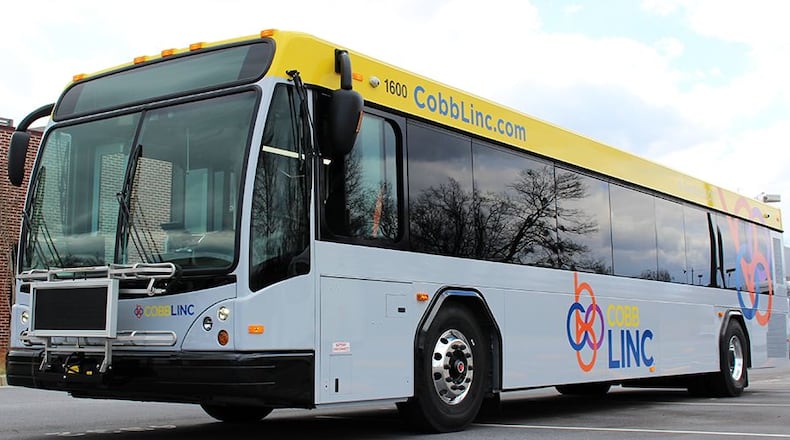Cobb County voters this November could be asked to fund the most significant expansion of mass transit in the northwest Atlanta suburbs since the county created its bus system in 1989.
County officials say the proposal — up to a one-cent sales tax that would generate billions of dollars over 30 years — would be a major step toward a true regional transit system. It would also help rectify what transit advocates see as metro Atlanta’s original transportation sin: sprawling suburbs like Cobb and Gwinnett opting out of MARTA in the 1960s and 1970s.
But it will be a major political test for the Board of Commissioners.
Rather than move aggressively to put a progressive stamp on the county government, Cobb’s new Democratic majority has so far governed cautiously in an area long known for fiscal conservatism.
A board vote to set the referendum in motion is tentatively set for March 22. It is not yet clear whether the measure has enough support to pass the board, let alone county voters.
Chairwoman Lisa Cupid at the board’s annual retreat last week pleaded with her colleagues to give the voters the chance to decide this year, while there’s billions of dollars in federal support that can be tapped for local transit.
“We have the opportunity ... to do what we have never done decade after decade after decade after decade,” Cupid said. “We can give the citizens access to unprecedented opportunity to pull down federal dollars that none of us have seen in our lifetime.”
The referendum was authorized by the state Legislature in 2018′s House Bill 930, which established the Mobility SPLOST, a variation on the special purpose local option sales taxes that are commonly used to fund transportation, education and government buildings across Georgia.
Cobb County has long been seen as the hitch in the plans of state and metro leaders to develop regional transit, and in 2018 the legislature considered creating a special district in south-central Cobb that could go forward on transit without the blessing of the county’s more conservative northern suburbs. But that effort was rejected in the interest of including the whole county in any transit expansion.
The project list would need to be finalized this spring before the measure can appear on the ballot. It would likely involve a mix of expanded local bus routes across Cobb and new services, such as bus rapid transit lines that could connect South Cobb and cities along the I-75 corridor to MARTA stations in Atlanta.
County transportation planners say the investments could eventually put over 70% of Cobb County residents and jobs within walking distance of transit — up from 24% of residents and 42% of jobs today.
The board’s two Republicans said last week they oppose the idea, leaving the measure’s fate in the hands of the three Democrats. All of them support transit, but only Cupid has come out in full-throated support of the ballot measure so far.
The need to appeal to voters across the county has given some transit supporters pause. Democrat Jerica Richardson, the East Cobb commissioner, last week said she thought more public outreach was needed to determine which projects voters would be most likely to support.
But the clock is ticking. The county already ran out of time to get interlocal agreements needed to pursue the Republicans’ preferred option: a 5-year sales tax that would have been earmarked for road and sidewalk projects instead of transit. Unlike the transit referendum, the funding generated by the 5-year option would have been shared with the county’s six cities — and had the written support of at least five mayors, said Commissioner Keli Gambrill, a West Cobb Republican.
Cupid said she wouldn’t support a 5-year tax for roads. Today, Cobb residents pay a 6% sales tax, the lowest in the metro area. That includes a 1% sales tax voters renewed in 2020 that’s expected to generate roughly $125 million annually for transportation and other projects over its six-year extension. If an additional 1% tax took effect to pay for transportation infrastructure, Cupid said it would kill any hope for mass transit funding.
This is at least the third board in the last decade to consider a transit expansion. Republican Chair Tim Lee unsuccessfully pushed for a bus rapid transit line that would link Atlanta to the new Braves stadium, while his successor, Republican Mike Boyce, supported the 2022 referendum before he lost re-election to Cupid.
This is the first time Democrats will have their turn at the wheel, but it comes at a tenuous moment. A pandemic and high inflation may deplete the public’s appetite for transit and higher taxes.
“This is the closest that any board has ever been to doing this,” Cupid said. “If not us, who else?”
About the Author
Keep Reading
The Latest
Featured



